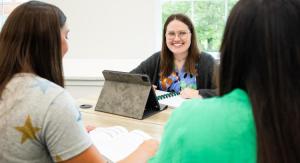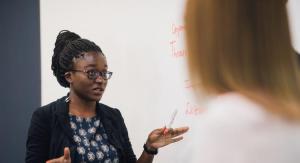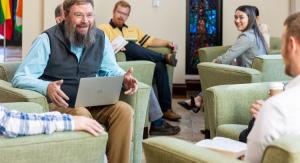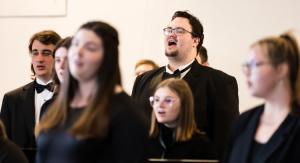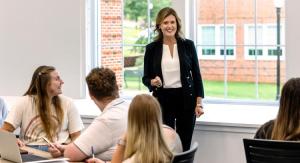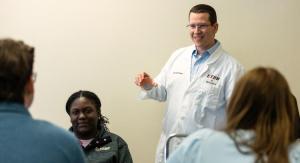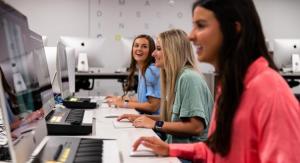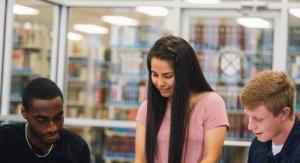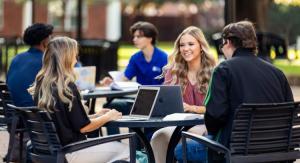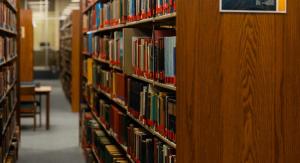A clinical or medical laboratory scientist (formerly Medical Technologist) is an allied health professional who performs chemical, immunologic, hematologic, and microscopic analysis as well as bacterial and cellular identification. A CLS or MLS is differentiated from clinical laboratory or medical laboratory technicians by their advanced knowledge in research methods, management, diagnostics and high complexity testing capabilities.
This program prepares technician-level clinical laboratory professionals to complete advanced laboratory coursework in preparation for national certification at the scientist level. The student must complete 40 hours of upper level clinical laboratory science courses as well as all appropriate general education requirements. This program is designed to be transfer friendly and is targeted towards both traditional and working adults. Students can go full or part-time and usually complete the program in one to two years (this is dependent on general education courses needed and the number of classes a student desires to take per semester). The program includes a certification preparation course. If students do not pass the national registry on the first attempt, they may audit the certification review course up to two times at zero tuition (online course fee applies).
ADMISSION AND PROGRAM REQUIREMENTS
General Admission Requirements
General admission requirements for the CLS program will be the same for transfer students.
Applicants must submit the following as a part of the general admission process:
- A completed University Application for Admission accompanied by a nonrefundable application fee.
- Official transcripts for all undergraduate work
- Any additional program admission requirements established by the applicant’s desired program or field of study.
Applicants must meet all University and program due dates for submission in order to receive full consideration for admission. Once an applicant has submitted the required credentials, a decision regarding admission or denial of admission of the student to the University will be made in a timely manner. At ETBU students are allowed to transfer up to 72 hours of credit. To complete the program the student must complete the 40 hours of core CLS courses and meet ETBU general education requirements.
The courses can be taken in any order except MDLS 4212 which must be taken the last two semesters of the program; MDLS 4331 cannot be taken until psychomotor assessment is successfully completed. Students can start in the fall, spring, or summer semester.
STUDENT LEARNING OUTCOMES
- Graduates will demonstrate knowledge and skills commensurate with an entry-level clinical laboratory scientist.
- Graduates will exhibit critical thinking skills that allow them to correlate laboratory findings and diagnosis.
- Graduates will be able to effectively evaluate quality control trends and shifts and instrumentation errors and troubleshooting.
- Graduates will demonstrate management skills in human resources, finance, and laboratory-specific management processes.
- Graduates will be able to implement effective laboratory safety and infection control practices.
- Graduates will assess how accreditation standards drive laboratory management processes.
Watch the video for more information.
NEXT STEPS
Request Information | Apply Now
Courses
Dr. Colleen Halupa, Professor and Program Director, Ed.D., MLT/MT (ASCP)
Dr. Kathleen Park, Faculty, Ed.D., MT (ASCP)
Ms. Patricia Brown, Faculty MS MT (AMT)
Ms. JoEllen Russell, MS MT (ASCP)
Mr. Anton Nichols MS MT (ASCP)
Program Mission, Goals and Outcomes: Provide program goals that will align, correlate, and support NAACLS entry levels competencies including both core and unique standards for the profession.
University Mission and Vision
The B.S. in Clinical Laboratory Science (CLS) online bridge program (MLT to MLS) is offered on the ETBU’s campus through Adult Education. This program aligns with both the University’s mission and strategic goals.
ETBU Mission Statement
As a Christ-centered institution, East Texas Baptist University educates students by integrating biblical faith and learning to develop mind, body, and soul through community engagement to prepare graduates to be Christian servant leaders in their calling to God and humanity.
CLS Program Mission Statement
The mission of East Texas Baptist University’s Clinical Laboratory Science Program is to prepare graduates with advanced clinical laboratory skills to meet the needs of employers and the community and to be leaders in their calling to serve humanity.
The CLS program is consistent with the mission to prepare future health care workers to be leaders in their calling to serve humanity. Program curriculum and student learning outcomes support the development of “learning to develop mind, body and spirit” and particularly “community engagement” since there is a shortage of clinical laboratory scientists nationally and in Texas that is projected to increase as the Baby Boomers age. Approximately 68% of CLS staff nationally are older than 46 years and will be retiring in upcoming years (Medical Laboratory Observer, 2018).
ETBU Strategic Goals
Embracing Faith
Ensuring the integration of biblical faith in curricular and co-curricular experiences including opportunities while embracing our Baptist heritage.
Engaging Minds
Equipping students through excellence in teaching, research, and scholarship to explore God's truth and provide the knowledge and skills for academics success, degree completion, employment opportunity, and lifelong learning.
Empowering Leaders
Developing and deploying Christian Servant Leaders for their callings to God and to humanity.
Enhancing Community
Creating an environment conducive to the development of the whole person through relevant facilities, resources, and services which allows a diverse and growing community to utilize their God-given gifts both locally and globally.
The CLS program supports three of the University’s Strategic goals.
Goal 2: Engaging Minds
This program provides clinical laboratory technicians (CLTs) who have graduated from any of the 74 associate’s degree programs in Texas and Louisiana, throughout the U.S. or from military MLT programs the ability to complete a bachelor’s degree while working in the field. Many hospitals provide tuition reimbursement to their employees. This will develop a more highly skilled workforce.
Goal 3: Empowering Leaders
Obtaining a bachelor’s degree in the clinical laboratory field would allow graduates to fill management positions at the department and overall laboratory level since certification as a CLS is required for these positions.
Goal 4: Enhancing Community
As noted previously, there is a significant shortage of CLS in Texas and throughout the country. This shortage is projected to increase since 64% of CLS staff nationally are older than 46. Many new graduates will be needed in upcoming years to fill positions.
CLS Program Goals
Each course in the program is aligned both to the program-level student learning outcomes, as well as NAACLS Knowledge, Skills and Competencies. Please see Appendix F of this report for sample evidence of this alignment at the course level.
Program Strategic Goals
1. To provide local employers and the region with well-prepared clinical laboratory scientists.
2. Ensure financial feasibility of the program.
Program-Level Student Learning Outcomes NAACLS Competencies
National Accrediting Agency for Clinical Laboratory Science (NAACLS) Competencies for a Medical (Clinical) Laboratory Scientist
At entry level, the medical laboratory scientist will have the following basic knowledge and skills in:
A. Application of safety and governmental regulations and standards as applied to clinical laboratory science;
B. Principles and practices of professional conduct and the significance of continuing professional development;
C. Communications sufficient to serve the needs of patients, the public and members of the health care team;
D. Principles and practices of administration and supervision as applied to clinical laboratory science;
E. Educational methodologies and terminology sufficient to train/educate users and providers of laboratory services;
F. Principles and practices of clinical study design, implementation and dissemination of results.
In addition at entry level an MLS will have competencies in:
G. Pre-analytical, analytical, and post analytical components of laboratory services
H. Clinical Chemistry
I. Hematology/Hemostasis
J. Immunology
K. Immunohematology/Transfusion Medicine
L. Microbiology
M. Urine and Body Fluid Analysis
N. Laboratory Operations
Program Student Learning Outcomes
1. Demonstrate advanced knowledge, technical and diagnostic skills in clinical laboratory science.
2. Integrate and interpret analytical data and establish a course of action to solve analytical problems.
3. Evaluate errors and trends in laboratory testing.
4. Develop laboratory management skills in continuous quality improvement, ethics, quality control, fiscal management, human resources and communication.
5. Create an environment of safe laboratory practice through standard infection control, chemical safety and general safety practices.
6. Comprehend and apply laboratory accreditation standards.
The program is accredited by the National Accrediting Agency for Clinical Laboratory Science).This program received the maximum number of years allowed for an initial program accreditation.
NAACLS Information
5600 N. River Rd. Suite 720 Rosemont, IL 60018-5119
phone: 773.714.8880 | fax: 773.714.8886
info@naacls.org
Essential Functions
Students in this program must have the following essential functions:
1. Visual Skills: Visual skills are required to perform laboratory assays in the field to detect microscopic artifacts as well as to evaluate specimens and instrument operation. In addition, students must be able to read and see information on a computer screen to access course material since all course material is online.
2. Kinesthetic Skills: For this program students need to be able to use a keyboard (or voice program) to complete assignments. In the field, students must have enough kinesthetic ability to pipette small volumes, remove caps on blood tubes, hold onto reagents bottles and blood tubes, press dials, keypads and switches.
3. Cognitive Skills: Students must have the intellectual skills to allow him/her to master the broad body of knowledge at the more advanced MLS- level. The student must have basic computational skills to convert within the metric system, solve equations and calculate percentages and dilutions.
3. Communication and Behavioral Skills: Students must have significant emotional health to collaborate in the online classroom respectfully with peers and the instruction. The student needs to be able to work effectively on a team since there are group discussions throughout the curriculum. The student needs to be able to communicate with others effectively in writing, on a computer and verbally.
General admission requirements for the CLS program will be the same as for transfer students, Applicants must submit the following as a part of the general admission process:
1. A completed University Application for Admission accompanied by a nonrefundable application fee.
2. Official transcripts for all undergraduate work.
3. Any additional program admission requirements established by the applicant’s desired program or field of study.
4. Student must meet essential functions for the field and submit an attestation regarding this prior to beginning the first semester of class.
Applicants must meet all University and program due dates in in order to receive full consideration for admission. Once an applicant has submitted the required credentials, a decision regarding admission or denial of admission of the student to the University will be made in a timely manner.
The student must have an associate’s degree in clinical or medical laboratory science for admission or equivalent military medical laboratory education with clinical training as outlined under program-specific requirements. Transfer credit is granted according to the policy outlined in the University catalog. To complete the program, the student must complete the 40 hours of core CLS courses and meet ETBU general education requirements. This program will have rolling admission since the core clinical laboratory has no prerequisites other than science with lab. The courses can be taken in any order except MDLS 4212 which must be taken the last two semesters of the program, and MDLS 4331 which cannot be taken until after psychomotor competency assessment in all areas has been successfully completed.
Students can start in the Fall, Spring, or Summer semester.
PROGRAM-SPECIFIC ADMISSION REQUIREMENTS
Additional admission requirements for the CLS program are listed below:
1. Hold an earned associates’ degree (or equivalent clinical and classroom training such as military training) in Clinical or Medical Laboratory Science or Medical Technology from an accredited U.S. college or university accredited by a regional accrediting agency, or one recognized by the U.S. Department of Education and CHEA). Applicants with degrees from foreign universities will have to undergo a transcript equivalency evaluation.
2. Have a minimum cumulative overall grade point average of at least 2.00 and a minimum grade point average of 2.50 in clinical laboratory science courses.
3. Must have completed a clinical rotation in required areas of the clinical laboratory (confirmed by transcripts).
4. Must have completed two of the following: Biology, Microbiology, College Chemistry, or Anatomy and Physiology with laboratory prior to admission to the program (the student can be admitted as a University Studies student while these pre-requisites are being met (if applicable).
5. Must exhibit good character, in the judgment of the University. East Texas Baptist University reserves the right to deny admission to any individual who has been convicted or adjudicated of a felony or a Class A (or equivalent) misdemeanor.
6. Students who have been out of the field for more than five years can enroll as a university studies student. These students will be enrolled in an MLT refresher course and must pass a comprehensive exam prior to program admission..
7. Must submit completed, signed competency checklists with a mastery level of 3 or above for all areas of the laboratory prior to enrollment in MDLS 4331 Supervised Clinical Laboratory Experience or the student will not be allowed to take this course (which is required for graduation).
MAJOR: CLINICAL LABORATORY SCIENCE
GENERAL EDUCATION REQUIREMENTS - 46 hours
English 1301, 1302 and 3 hours sophomore literature - 9 hours*
Fine Arts (music, theater, art or equivalent) - 3
Religion 1320 and 1330 - 6
Political Science 2305 - 3
History - 3 hours*
Social Science 3 hours*
Physical Activity KINE 1238 - 2
Science (Biology, Microbiology, College Chemistry or Anatomy and Physiology with lab) - 8 hours
Mathematics - 6 hours*
Speech 1311, 1315 or 1318 - 3
Major Area of Study (see below) - 40
Electives (to total 120 hours)
Total: Minimum one hundred twenty (120) semester hours
Clinical Laboratory Science Major Requirements
Completion of forty (40) semester hours:
MDLS 3312 Advanced Parasitology and Mycology
MDLS 3322 Advanced Urinalysis and Body Fluids
MDLS 3412 Advanced Hematology
MDLS 3422 Advanced Clinical Chemistry
MDLS 3432 Advanced Microbiology
MDLS 3440 Advanced Immunology and Virology
MDLS 3452 Advanced Immunohematology
MDLS 4212 Certification Preparation
MDLS 4312 Laboratory Management and Supervision I*
MDLS 4322 Laboratory Management and Supervision II
MDLS 4331 Supervised Clinical Experience**
MDLS 4340 Clinical Laboratory Research Methods and Practices
*Course must be taken within the last two semesters of the program
** Course cannot be taken until after psychomotor assessment is complete.
See the current catalog for full descriptions.
A C student can expect to engage in course readings and assignments approximately 5-7 hours per week for a 3 credit hour class and approximately 8-10 hours per week for a 4-credit hour class.
Find the current academic catalogs and calendars here.
- 2023-2024 tuition $501 per credit hour
- 2024-2025 tuition $514 per credit hour
Clinical site liability insurance is included for required student psychomotor evaluation at the laboratory of their choice.
Fees
$70 per course online delivery fee.
Course Withdrawal Fee:
If you withdraw from a course after the first two weeks of class there will be a $25 fee.
Withdrawal Policy and Refund Information
Book and resource costs for the CLS courses are approximately $600 for the program. This can vary depending on if students rent or purchase books. Two books are used throughout the curriculum.
Institutional technology information about hardware, Internet and passwords can be found here: https://www.etbu.edu/about-etbu/campus-offices/institutional-technology/new-student-it-information
Technology requirements and Accessibility Documents for general software used in this program can be found here: https://www.etbu.edu/info-for/online/etbu-online-policies
All online general policies, student expectations, and academic support services can be found in each class in Canvas on the home page and at
https://www.etbu.edu/info-for/online/etbu-online-policies
CLS Program-Specific Technology
Lab CE
This video, image and text-based program is used in every class in the CLS major.
Lab CE Accessibility Documents: Lab CE does not post accessibility documents; however, the site has written transcripts of all materials. These can be accessed with a subscription and is included in all CE courses.
MDLS 4331 Supervised Laboratory Experience
This course uses a free simulation through AMRITA which uses CloudMosa by Puffin Innovations.
Puffin Innovations Accessibility Policy
MDLS 4212 Certification Preparation
The American Society of Clinical Pathologists Review Course is a 10-week course that is geared to prepare students for certification by ASCP at the MLS level. This program does NOT have close captioning available. However, the entire course is text-based and all information is available via text.
All students must meet Satisfactory Academic Progress to receive Financial Aid. Student must have a 'C' or above in all CLS courses as described in the current academic catalog. Students must complete all general education courses with a grade of 'D' or higher. Student must have a minimum overall GPA of 2.0 and a minimum GPA of 2.5 in all CLS courses.
Review Netiquette for the University.
Review the Academic Integrity Standards in the current academic catalog.
Psychomotor Assessment
All student are require to meet laboratory professional standards of conduct when doing psychomotor assessment at the facility of the student's choice. Almost all students will complete this assessment at their place of work (in accordance with prohibition of service work and outside duty hours) and will already be required to adhere to their facilities standards of conduct in professionalism, ethics and safety.
Students who opt to conduct this assessment outside of the facilities in which they work must comply with all the rules of the facility that has agreed to complete the assessment. This includes requirements for safety training, infection control, conduct, immunizations (if required), etc. The student is responsible for any associated costs for items such as immunizations if they are not current).
ACADEMIC STANDING
In order to be considered in good academic standing, students must make satisfactory academic progress toward a degree as follows: Full-time students must maintain a minimum cumulative grade point average of 2.00 each semester and must have earned a minimum of twenty-four semester hours during each academic year (as defined for this policy). Full-time students having attended only one standard semester (fall or spring) at ETBU during an academic year will be required to have earned a minimum of twelve hours that semester.
For this policy, an academic year is defined as beginning on August 1 of one calendar year and ending on July 31 of the following calendar year.
ACADEMIC PROBATION An undergraduate student is placed on academic probation at the end of any semester where they fail to meet the conditions of good academic standing; that is, at the end of any semester where any of the following occurs: 1. The student’s cumulative grade point average is less than 2.0, or 2. The student fails to complete a minimum of twenty-four semester hours during an academic year (as defined for the good academic standing policy). During the period on academic probation, the student will be subject to the terms of an official Academic Deficiency Plan as developed by the office of Academic Success, which may include a course to develop appropriate skills. Students who fail to meet the terms of the Academic Deficiency Plan within the time allotted will be subject to Academic Suspension. First-time, full-time freshmen students who have not met the policy for good academic standing may be granted a one-time appeal by the Provost and Vice President of Academic Affairs. Appeals must be sent by email to academicaffairs@etbu.edu before the end of the first class day of the standard semester following notification of probation. If the appeal is granted, the student must meet with a staff member in the office of Academic Success, to complete an Academic Deficiency Plan to remain in good academic standing. Students on Academic Probation are not eligible for participation in NCAA athletics or club sports.
ACADEMIC POLICIES RETURN TO GOOD ACADEMIC STANDING A student’s academic status will return to good academic standing and the student will no longer be on academic probation at the end of any semester where the student meets the following criteria: 1. For students on academic probation due to grade point average issues, the student’s semester grade point average is 2.0 or higher and the student’s cumulative grade point average is 2.00 or higher. 2. For students on academic probation due to semester hour issues, the student completes a minimum of 12 semester hours during a standard semester (fall or spring).
ACADEMIC SUSPENSION Students will be placed on Academic Suspension when they fail to be in Good Academic Standing after being placed on Academic Probation for two consecutive semesters. The terms of the suspension will be clearly defined in a letter informing the student of his or her suspension. Academic Suspension generally means the student is not eligible to enroll at the University for one regular semester, and until they complete an Academic Plan with the office of Academic Success. Students may become eligible to enroll earlier if they use courses in any mini-term, summer term, or courses transferred from another university that result in placing them in Good Academic Standing. Reinstated students will be placed on Academic Probation during the first semester of reinstatement and must be in Good Academic Standing at the end of one year or be subject to a second suspension. Students placed on Academic Suspension for the second time will not be eligible to re-enroll until two regular semesters have elapsed. Students will not be allowed to re-enroll at the University following a third academic suspension.
Students who did not meet these requirement are subject to dismissal.
Student Advising
Academic
All student advising records (both academic and personal) are retained and remain confidential under the rules of FERPA and the university. All advising is impartial; all students have equal opportunity in signing up for classes (for classes that fill it is first come, first served).
Personal
Faculty and the program director are responsible for directing students to the proper resources for both academic and personal issues. Although the students in this program are geographically separate, faculty who are aware of student significant personal issues will engage the ETBU counseling center to assist students in obtaining needed resources in their community. This center provides confidential and impartial services to online students. Information can be found at https://www.etbu.edu/about-etbu/campus-offices/counseling-care-center
POLICY STATEMENT
It is the policy of East Texas Baptist University to provide academic advisement to all currently enrolled students.
FACTS OF INTEREST
The academic advising program is designed to provide students with the assistance needed to plan and complete that course of study appropriate to individual needs, interests, and abilities. It is the student’s responsibility to make appointments with the advisor prior to each registration period. The student must obtain advisor approval in order to register.
PROCEDURES
Following initial registration in the University, undergraduate students/advisees are assigned to faculty members, usually in their academic departments.
The Office of Graduate Services, in conjunction with the graduate program director and/or school dean, ensures that all students enrolled in graduate programs are assigned an academic advisor at time of admission based on the degree the student is seeking. The academic advisor assists the student in planning his or her academic program and approves the advisee’s schedule each semester.
Duties of the advisor include:
• advising the student concerning appropriate course sequences;
• assisting the student during registration;
• assisting the student in adjusting to university life;
• assisting the student with academic problems which may arise; and
• serving as a student advocate in matters associated with university life.
Change of Advisor
In certain instances, a student may desire to change advisors. To change the assigned advisor, the student must initiate the change with the Office of Academic Success. After reviewing the request, the Director in conjunction with the appropriate dean, will determine whether the change is advisable and notify both the student and those faculty impacted by the change.
Although the University seeks to provide continuing advisement, the ultimate responsibility of knowing and fulfilling those degree requirements listed in the catalog rests with the student.
Contact for Interpretation: Provost and Vice President for Academic Affairs
To complete a B.S. in Clinical Laboratory Science, the students must have previously completed an A.S. program in Clinical or Medical Laboratory Science or Medical Technology (or equivalent clinical and classroom training such as military training). Students have to complete at least a total of 120 credit hours; at least 40 hours must be junior and senior level clinical laboratory science core courses. In addition, students must meet ETBU general education requirements. Students must comply with Satisfactory Academic Progress (SAP) guidelines.
FEES
A fee per course is assessed for all online courses. Please see current catalog for list of fees. In addition, there is an additional fee for a practice exam in MDLS 4212 Certification Preparation in lieu of a second textbook; this fee is not required if course is audited to remediate students who did not pass the first registry attempt.
The National Accrediting Agency for Clinical Laboratory Science’s service work policy applies to students when they are completing their psychomotor assessment. While performing these assessments, students are considered “students” even at their place of employment.
Students who are working with mentors for formal assessment of psychomotor skills must do this assessment outside of normal work hours. This is considered academic time and is not service work. Students must be directly supervised at all times.
Since this is a bridge completion program that only accepts medical laboratory technicians (MLT's), students will have previous clinical laboratory skills. However, students must be assessed to ensure their psychomotor skills are at the entry Medical Laboratory Science (MLS) level.. Students are responsible for finding their own laboratory site(s) to perform this psychomotor assessment and remediation if required.
Students must to submit a statement of support from the laboratory(ies) which agrees to assess the student prior to the end of the first semester, or the student will not be able to register for classes the next term. An affiliation agreement must be signed by the laboratory facility prior to students beginning the assessment process. This can take several weeks or more, so the statement of support should be submitted by the student as soon as possible.
Students must complete all psychomotor assessments before they can enroll in MDLS 4331, a class in which psychomotor skills are enhanced by virtual laboratories.
If the student cannot find a site, ETBU has sought out agreements with local facilities within a one-hour radius of the Marshall, Texas area where students can be assessed and remediated as required. Please contact the program director for this information if needed.
All students and laboratory facilities must comply with ETBU's service work policy.
LIST OF CLINICAL FACILITIES
All affiliation agreements with clinical sites are on a "per-student" basis.
Since the program accepts students three times a year, and psychomotor assessment can be done much more quickly than clinical training, the program's list clinical facilities will be constantly changing. A list of current sites can be obtained from the program director.
This is an online program that accepts students from most states in the U.S. Students are required to obtain a clinical laboratory in their local area to assess their psychomotor skills at the entry-level Medical Laboratory Scientist (MLS level). Students must reach a mastery level of three out of four on a mastery rubric on each skill to be deemed competent in that task.
This program only accepts medical laboratory technicians (MLTs) who have completed previous clinical training. Most students will likely complete their assessment at their place of employment. In some cases, students may need to find an additional laboratory if their laboratory does not have services such as microbiology.
Students who are not currently working in the field are required to find a clinical laboratory that will assess their skills and complete all required agreements.
Students are required to:
·1) Submit a statement of support from a clinical laboratory(ies) prior to the end of the first semester.
· 2) An affiliation agreement is then sent to this laboratory. This must be signed and returned to ETBU before students can commence the assessment process.
Students can utilize multiple laboratories for this assessment process, but a statement of support and an affiliation agreement must be completed with each laboratory and must be on file before assessment can commence. Each laboratory must also complete a clinical facility fact sheet.
ETBU has pursued affiliation agreements with a local facilities in East Texas area where students can make arrangements to be assessed at their own and the facility’s convenience. However, the student will be responsible to all safety and health requirements (including the cost immunizations) as well as travel and hotel costs. This is provided as an option for students who cannot find a laboratory to assess their skills.
Policy for Clinical Assessment when Placement Cannot be Immediately Guaranteed
Students are required to find their own clinical sites and are required to submit a statement of support by the end of the first semester or they cannot enroll in the next semester. This is to ensure this assessment does not delay student progress in the program. ETBU cannot guarantee a student will find a place in their local area to assess these skills in all areas.
As noted above, ETBU has pursued affiliation agreements with local facilities in the East Texas area where students can be assessed. However, the student is required to arrange this with the facility him/herself in keeping with program policy. Although these facilities have agreed to assess students, it will be done at their convenience when they have the capacity and staff to perform the assessment. Placement cannot be guaranteed, but ETBU has pursued enough of these arrangements to provide multiple options for students. The student may need to be flexible to accommodate these facilities. Should a student have exhausted all other avenues and needs to use one of these facilities for assessment, the student is responsible for all associated costs (immunizations, travel, lodging, etc.). Facilities retain the right to turn away students who violate safety policy or do not provide proof of any required immunizations, etc. or whose behavior may be hazardous to patient services.
Information can be found on the Student Complaints page.
Graduation Rates
2021-2022: 100%
2022-2023: 100%
2023-2024: 100%
Graduation rate is all students who enter the second half of the program and subsequently graduate.
Certification Pass Rates
This program serves mostly rural health facilities and only accepts MLTs and most who graduate do not go on and take their MLS certification. The small number of students who take the registry significantly skews and lowers the pass rates when students fail.
2020-2021
ASCP: 43%
AMT: None attempted exam
2021-2022%
ASCP: 60
AMT: 100%
2022-2023
ASCP: 0 None attempted
AMT: 0 None Attempted
2023-2024 PRELIMINARY DATA
ASCP: 33% so far but data is very preliminary (3 students attempted)
AMT: 50% so far but data is very preliminary (2 students attempted)
Three-year pass rate (2021, 2022, 2023) for both certifications is 55%
Placement Rates
This only includes students who have matriculated to the final half of the program and graduated.
2020-2021 100%
2021-2022 89% (one student opted not to seek employment)
2022-2023 100%
2023-2024 100%
Purpose: Should ETBU opt to close the CLS program at some time in the future, the university is obligated to allow all students who have started the program complete their degree at ETBU should the students desire to do so.
Procedure:
1. If the decision is made to discontinue offering the CLS program, at that time no additional CLS students would be accepted for admission from the point the decision was made.
2. The regional accrediting body (SACSCOC) would have to be notified and they would require a teach-out plan be submitted to approve closure of the program. ETBU would also be required to notify NAACLS, the programmatic accreditation body.
3. All current students would be allowed to complete the program at ETBU until all applicable students had graduated.
a. Initially all courses would continue to be offered in the regular semester format
b. As the number of students needed specific CLS courses decreased, these courses would then
be offered as conference courses.
4. Students who just began the CLS program would be offered the option to transfer into other ETBU programs that might meet their needs. However, this would be the student’s decision. ETBU will ensure all students who wish to complete the program can.
5. As an additional alternative for newer students, ETBU would seek transfer agreements with other CLS online programs (such as the University of Cincinnati and Weber State) to create agreements for acceptance of ETBU CLS classes on a one-to-one basis to provide an additional option for newer students.
6. ETBU will ensure sufficient faculty will remain during this teach-out period.
7. ETBU will maintain NAACLS accreditation during this teach-out period.
Student Safety and Health Policy
This is an online program where students engage in the educational process in a home office environment.
However, students are required to do assessment of psychomotor competencies to meet psychomotor objectives prior to enrollment in MDLS 4330. This requires students to handle biological and potentially infectious specimens as well as hazardous chemicals.
All students are required to do initial laboratory safety training (which includes infection control) upon initial entry into the program.
Students who opt to do these assessments at their place of employment (majority of students) will already have all applicable health and safety information on file at their place of employment. The laboratory personnel who conduct assessment must attest that safety training was completed on each checklist.
Students who lose their jobs or are employed at a small laboratory may need to find another facility to complete these assessments. Students are required to meet all of the health and safety training requirements of that facility which may include additional remedial training for the student. In addition, facilities may require additional immunizations, background checks, etc. These are all at the student’s expense.
PATIENT SAFETY
Students who are completing psychomotor competency assessment are working under the direct supervision of laboratory personnel to ensure patient safety. They are considered in “student status.”
This is an online program where faculty engage in the educational process in a home office environment. No faculty are required to handle chemicals or biologicals. Psychomotor competency assessment is accomplished at laboratories that agree to assess the students under the supervision of their staff.
Faculty are required to take an initial online laboratory safety training only since they are not teaching in the clinical laboratory.
34 CFR 668.43c requires that all distance education programs that lead to professional licensure or certification required for employment in an occupation must now disclose if the program is sufficient to meet licensure requirements for that state.
ETBU has a reciprocity agreement to provide online learning in other states through the National Council for State Authorization Reciprocity Agreements (NC-SARA). This allows ETBU to provide online education for students living in ALL states except for the following: California
ETBU also cannot provide educational programs to students who live in the U.S. Territories or in Canada.
Successful completion and graduation from ETBU’s bridge program (B.S. in Clinical Laboratory Science) is required for eligibility to take the American Society of Clinical Pathologists (ASCP) Medical Laboratory Scientist certification which is a national certification exam. It also gives students eligibility for other certifications such as American Medical Technologists certification, which is another national certification. In addition, there are other certification bodies in which some students may also be eligible.
The following states require additional licensure or certification to practice in that state as a Medical Laboratory Scientist. In addition to national certification, these states require students to meet their requirements before they can work in a laboratory in these states. These requirements vary from state-to-state. All include paying a fee(s), while other may include specific professional development courses, as well as documentation of education, training and competency. In all states but California, national certification is required. There are currently 11 states with licensure requirements:
California, Florida, Georgia, Hawaii, Louisiana, Montana, Nevada, New York, North Dakota, Tennessee, West Virginia
Licensure is also required in Puerto Rico, the ETBU cannot provide education to students in U.S. Territories under the NC-SARA Reciprocity agreement. The American Society for Clinical Laboratory Science has a great information page about these state requirements.
| Name/Title | Division | Phone | |||
|---|---|---|---|---|---|

|
Dr. Colleen M. Halupa Dean, Online Education Professor of Clinical Lab Science |
Academic Affairs | 903.923.2038 | Send Message | View Bio |

